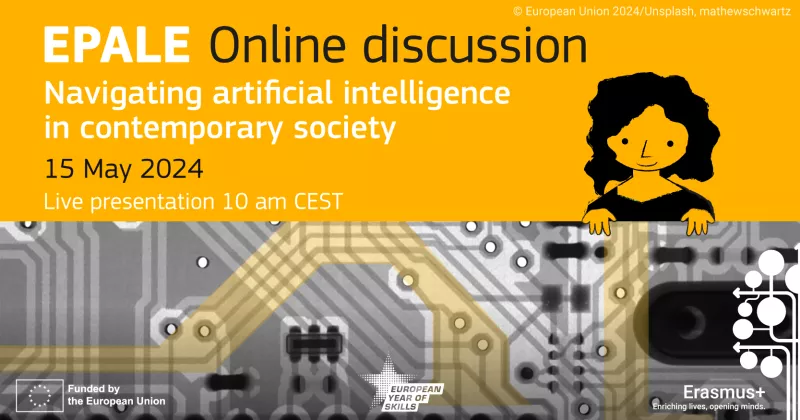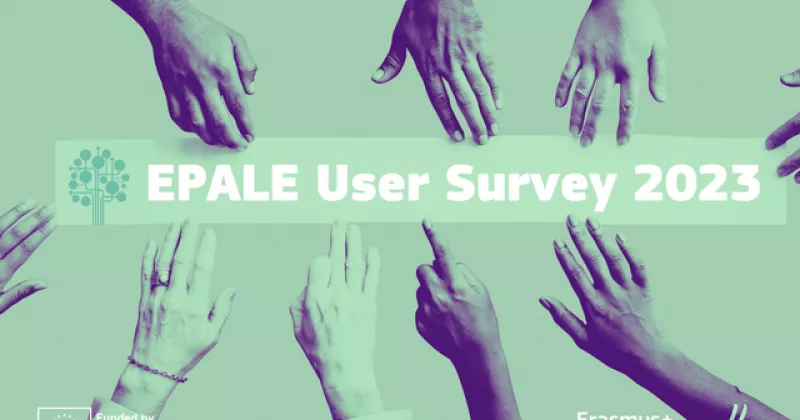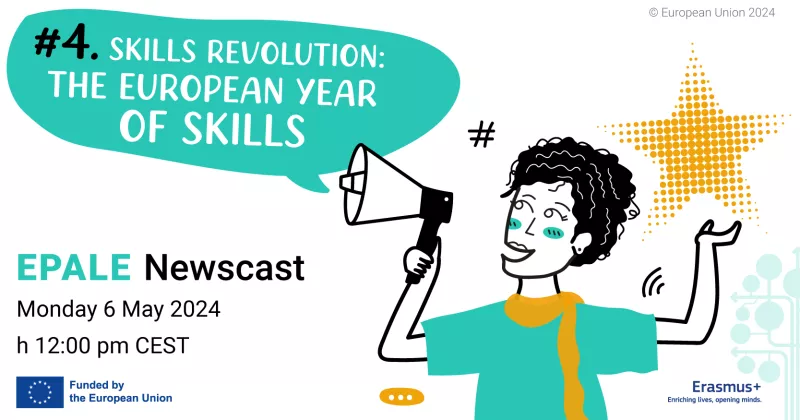Dóra Czirfusz, a Community Story from Hungary

I have been teaching seminars on research methodology, statistics and infocommunication technology for seven years as an external lecturer at Eötvös Loránd University (ELTE). As a survey statistician and a digital education specialist, I have the opportunity to introduce students to research, analysis and everyday ICT opportunities through practical examples.
I found out about the EPALE community during the transition to distance learning a few months ago. I gained most of my teaching experience in higher education through my own classes, so I felt the need to learn more about digital education opportunities in adult learning in order to succeed in my transition to distance learning. Reading several professional materials and discourses on the EPALE website helped me continue the semester seamlessly even in the new learning environment.
After announcing the switch to emergency remote teaching, I thought it important to inform the students that the course would still go ahead as planned, and I initiated a dialogue on how to shape the semester. As an external lecturer, I was more or less free to establish the new framework and take into account individual student needs.
The survey conducted by the Faculty of Education and Psychology of Eötvös Loránd University on the digital background of the students attending my two courses (in terms of attitudes, skills and specific IT equipment) was a great help to me. Based on this survey, I chose the platform (Google Hangouts) where we held the classes, and I was also provided with guidance on, for instance, what to pay special attention to when creating groups for groupwork (e.g. for students using tablets or smartphones there should always be at least one student in the group using a laptop or a desktop computer so that they can easily complete any task that requires extensive typing or editing).
It was important to understand that there are students who may have an unreliable internet connection, so I posted detailed notes with links and additional comments after each class which remained available for students to consult or download at a later time.
The traffic on the communication channel used to transfer information about the course (Facebook Messenger) increased significantly as not only the venue and the schedule of the course but also students’ schedules changed, so a lot of coordination was needed.
These were small courses with no more than 10 students on each, so we held the classes on Google Hangouts and used Google Drive to share course materials and assignments. I looked for tools that also work using a smartphone and are easily accessible to everyone.
The biggest challenge for me was to transfer my previously prepared lesson plans and groupwork activities to the digital space.
The preparation time increased significantly, but at the same time I had the opportunity to develop new tasks by employing new methodologies.
I was especially unsure about my Statistics course, how to effectively explain some of the more difficult calculations, and how I could check that the students were actually able to follow the material. In such cases, desperate looks and grimaces are really telling in the classroom, but in the online space these were not always noticeable. I found that the trust between the instructor and the students and the atmosphere in which the students dared to ask questions if they got stuck eventually allowed us to move at a pace that was comfortable for all participants.
While in the classroom I had the opportunity to exchange a few words with the students before and after classes, such conversations dropped to a minimum in the digital space. Therefore, I felt the need to incorporate a warm-up and a closing activity in each class.

We used a polling system (Mentimeter) to measure students’ mood at the beginning of each session, and then at the end of the class I asked for feedback on what topic students found interesting and how well they were able to keep up with me. Mentimeter provides a variety of editing options and is easy to use even from a smartphone. Another useful feature of the application is that the teacher can post questions during the poll, and the results of the polls can be reviewed giving comparable feedback on each session.
Based on student feedback, there was a high demand for synchronous meetings. Besides going through the curriculum, thinking and working together helped them get through the semester and overcome the feeling of isolation. I plan to use the tested digital materials in the coming semesters, and these will be suitable for supporting individual learning paths (especially those units in the Tankocka app where students were able to choose from a variety of topics based on their interests, or the Google Forms used for the assessment of students’ prior knowledge). I saw it as a significant change in approach that students submitted high-quality assignments thanks to the more flexible deadlines and course completion methods, and their submissions reflected their professional interest to a greater extent than in the traditional classroom environment.
We're looking forward to hearing your story. Share your story today!






Mentimeter